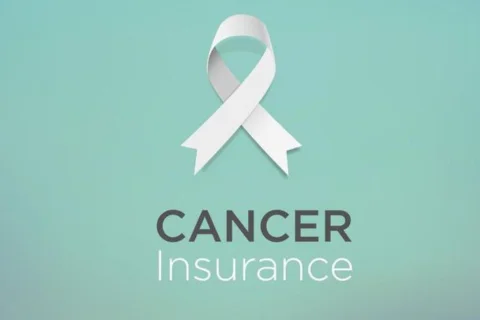
How do I pick a life insurance company
Roughly a thousand life insurance companies sell life insurance in the U.S., but many are partners of groups of companies and aren’t competitors. Different companies enable a group to offer products through separate distribution channels, meet certain states’ regulatory requirements more efficiently, or gain other organizational goals. There are 300 company groups.
Moreover, only some parties have a company licensed to work in each state. As a public rule, you should purchase from a company licensed in your state because you can trust your state insurance department to help if there’s a problem. And if the insurance company becomes insolvent, your state’s life insurance guarantee pay for will help only those who are policyholders of companies it has licensed. To discover which companies are licensed in any state, contact that state’s state insurance department.

There Are Many Other Points to Keep in Mind When Choosing a Life Insurance Company:
1. Product—Many, but not all, companies offer a wide range of policies and features, so select a company that provides the products and features that meet your needs and requirements.
2. Advice and service—Life insurance is a strange, complex product for multiple people, so it helps to deal with a representative with whom you can communicate and who is aware of your requirements. This might be connected to choosing a life insurance company because some agents represent only one or very few companies. See, How do I select a life insurance agent?
3. Claims—You may want to check a national claims database to see what grievance information it has on a company. Also, your state insurance department can tell you if the insurance company you are contemplating doing business with had consumer complaints about its service that was close to the number of policies it sold.
4. Market ethics: Few life insurance corporations subscribe to the principles and codes of conduct of the Insurance Marketplace Standards Association. This nonprofit organization promotes ethical conduct in life insurance marketing.
5. Identity – The life insurance company’s name can be perplexed; different companies can have identical names. Life insurance company names usually use words that offer financial strength (such as Guaranty, Security or Reserve), financial sophistication (such as Bankers, Investors or Financial), maturity (such as First, old or Pioneer), dependability (such as Assurance, Trust, Reliable), fairness (such as Equitable, Beneficial, or Peoples), breadth of operations (such as National, International or Continental), government (such as American, Republic or Capital), or well-known and respected Americans (such as Franklin, Jefferson, or Lincoln). Be sure you know the full name, home office location, and affiliation (if any) of any company you are considering.
6. Financial Solidity – life insurance is a long-term arrangement. There is no warranty for life insurance policyholders identical to that of the Federal Deposit Insurance Corporation (FDIC) for bank accounts. Select a company that will likely be financially sound for multiple years, using ratings from self-dependent rating agencies.
7. Premium and cost – The premium is the quantity of money you pay the company for the life insurance agreement with all its benefits. Even for a given death benefit and type of insurance (e.g., term life), the premium can alter widely among companies, either because some policies have characteristics that others don’t or because some charge more than others for the same coverage. So, the first step in comparing policies is to make sure you compare identical insurance plans based on the following:
– Your age
– The type of policy and policy features
– The amount of insurance you are buying.
The premium for the policy isn’t the same as the cost of the security portion. One policy might have a higher premium but deliver more benefits (for example, it might pay policy dividends) than another. Or both might promise dividends, but in various amounts at different times. In each case, the higher-premium policy might have a low cost of protection. How can you tell what a policy’s cost is? Companies should suggest a policy’s Net Payment Cost Index and its Surrender Cost Index. Use the Surrender Cost Index if you’re considering supporting the insurance only for a specific time; use the Net Payment Cost Index if you expect to keep the policy indefinitely. Generally, the cheaper the cost index, the better.
Related Post list
-
 What is auto insurance?
What is auto insurance? -
 Why Women's Health Insurance is a Must-Have
Why Women's Health Insurance is a Must-Have -
 What are the Best Health Insurance Options for Women?
What are the Best Health Insurance Options for Women? -
 Best Women's Health Insurance Coverage in USA | Comprehensive Guide
Best Women's Health Insurance Coverage in USA | Comprehensive Guide -
 Top 5 Health Insurance Companies in the USA
Top 5 Health Insurance Companies in the USA -
 Advantages of Leading Health Insurance Plans USA
Advantages of Leading Health Insurance Plans USA -
 Top-Rated Cancer Insurance Plans in the USA | Your Guide to the Best Coverage Options
Top-Rated Cancer Insurance Plans in the USA | Your Guide to the Best Coverage Options -
 What Info is Required to Confirm Dental Insurance USA
What Info is Required to Confirm Dental Insurance USA -
 Top-Rated Cancer Insurance Plans in the USA | Your Guide to the Best Coverage Options
Top-Rated Cancer Insurance Plans in the USA | Your Guide to the Best Coverage Options -
 Affordable Healthcare for Students | A Review of Compass Health Insurance
Affordable Healthcare for Students | A Review of Compass Health Insurance





